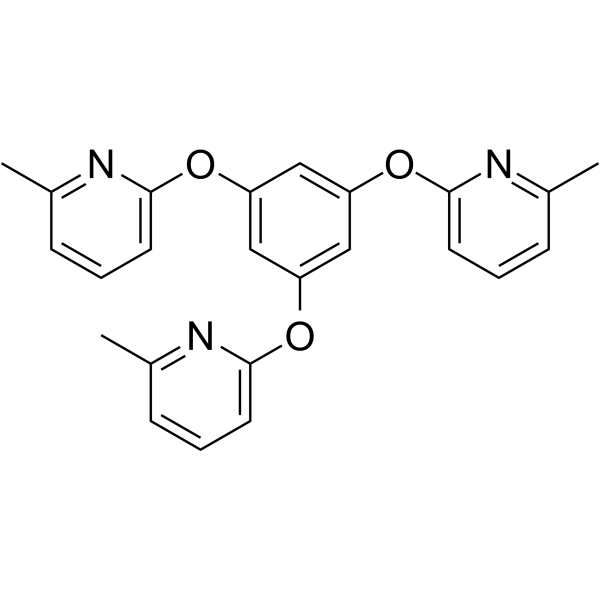NX-13
Modify Date: 2025-09-01 05:25:00

NX-13 structure
|
Common Name | NX-13 | ||
|---|---|---|---|---|
| CAS Number | 2389235-01-0 | Molecular Weight | 399.44 | |
| Density | N/A | Boiling Point | N/A | |
| Molecular Formula | C24H21N3O3 | Melting Point | N/A | |
| MSDS | N/A | Flash Point | N/A | |
Use of NX-13NX-13 is a first-in-class, orally active and gut-restricted agent that selectively targets and activates the NLRX1 pathway to induce immunometabolic changes. NX-13 results in lower inflammation and responses in inflammatory bowel disease. NX-13 can be used for the research of crohn's disease and ulcerative colitis[1][2]. |
| Name | NX-13 |
|---|
| Description | NX-13 is a first-in-class, orally active and gut-restricted agent that selectively targets and activates the NLRX1 pathway to induce immunometabolic changes. NX-13 results in lower inflammation and responses in inflammatory bowel disease. NX-13 can be used for the research of crohn's disease and ulcerative colitis[1][2]. |
|---|---|
| Related Catalog | |
| Target |
NLRX1 |
| In Vivo | NX-13 (0, 500, or 1000 mg/kg; oral gavage; 7 days) reduces ALP levels[2]. NX-13 (1 and 10 mg/kg; oral gavage; 0~24 hours) reaches the distal gastrointestinal tract[2]. Animal Model: Sprague Dawley rats (six weeks age)[2] Dosage: 0, 500, or 1000 mg/kg Administration: Oral gavage; 7 days Result: ALP in rats given the 1000 mg/kg dose level was lower than that in rats given 500 mg/kg. Animal Model: Male C57BL/6J mice (8-10 weeks age)[2] Dosage: 1 and 10 mg/kg (Pharmacokinetics analysis) Administration: Oral gavage; 24 hours Result: Reached the distal gastrointestinal tract. |
| References |
| Molecular Formula | C24H21N3O3 |
|---|---|
| Molecular Weight | 399.44 |